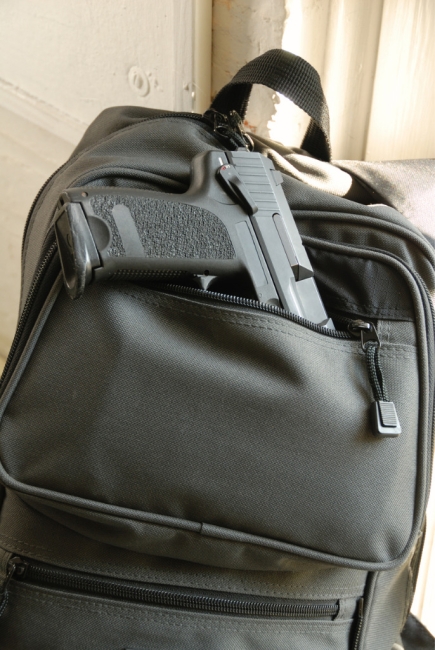You have /5 articles left.
Sign up for a free account or log in.

iStock
A federal appeals court on Thursday rejected a challenge by three professors to the 2015 campus carry law in Texas, which permits those who hold permits to carry concealed weapons to have their guns present on public college and university campuses, including in classrooms.
The law has alarmed many academics in the state. Leaders of the state's public universities opposed the measure but have argued that they have no choice but to carry it out now that it is law. Three professors at the University of Texas at Austin filed a federal lawsuit charging, among other things, that their First Amendment rights were violated by the law. They said that fear of students using guns in class would discourage discussion of controversial topics. A federal judge rejected the lawsuit in 2017, but the professors appealed and their appeal received backing from the American Association of University Professors, among others.
Last week's ruling, by a three-judge panel of the U.S. Court of Appeals for the Fifth Circuit, upheld the 2017 decision.
In the appeal, the professors argued that classroom speech would be "dampened to some degree by the fear" it could lead to violence by students in class who have “one or more handguns hidden but at the ready if the gun owner is moved to anger and impulsive action.” Many classroom topics are controversial and can leave some students angry, the professors noted. Further, the lawsuit noted that professors who barred guns from their classrooms would be violating the regulations UT put in place to carry out the law and would be subject to punishment.
The appeals court said that for the professors' argument to be valid, there must be certainty that gun violence would take place.
The flaw in the professors' argument, the decision says, is "that none of the cited evidence alleges a certainty that a license-holder will illegally brandish a firearm in a classroom," the decision says. "Ultimately, whether concealed-carrying students pose certain harm … turns on their independent decision-making. Because [the professors fail] to allege certainty as to how these students will exercise their future judgment, the alleged harm is not certainly impending."
Many faculty members have opposed campus carry in Texas and elsewhere, but the legal argument made by the professors in Texas stands out among other efforts to oppose state campus carry laws.
Mia Carter, associate professor of English at UT Austin and one of the professors who sued, said via email that she and her colleagues were not certain on next steps. However, she said, campus carry must be opposed.
"We are disappointed, but not especially surprised by the decision in the Fifth Circuit," she said via email. "It is going to be a long, difficult, and complicated battle to get common sense gun laws in our country. It is going to take a village of citizens to ensure that the gun lobby and the National Rifle Association’s 'normal' of loaded lethal weapons in all public spaces at all times does not become a reality. We will not blithely accept the weaponization of the educational environment as the new normal."
The AAUP brief filed in the case said that the law was a direct challenge to academic freedom. The "decision whether to permit or exclude handguns in a given classroom is, at bottom, a decision about educational policy and pedagogical strategy," the brief says.
"It predictably affects not only the choice of course materials, but how a particular professor can and should interact with her students -- how far she should press a student or a class to wrestle with unsettling ideas, how trenchantly and forthrightly she can evaluate student work. Permitting handguns in the classroom also affects the extent to which faculty can or should prompt students to challenge each other. The law and policy thus implicate concerns at the very core of academic freedom: They compel faculty to alter their pedagogical choices, deprive them of the decision to exclude guns from their classrooms, and censor their protected speech."
Quinn Cox, Southeast regional director of Students for Concealed Carry, issued a statement Sunday praising the appeals court's decision.
"I am pleased to see this two-year-old law upheld," Cox said. "Once again, opponents of campus carry have failed to provide evidence that campus carry makes college campuses less safe or inhibits the free exchange of ideas. In Texas, vetted, licensed adults have been allowed to take their concealed firearms into places like movie theaters, churches, and public libraries for more than 20 years. It is silly to think that expanding this law to include the buildings of public colleges would somehow violate the U.S. Constitution."








